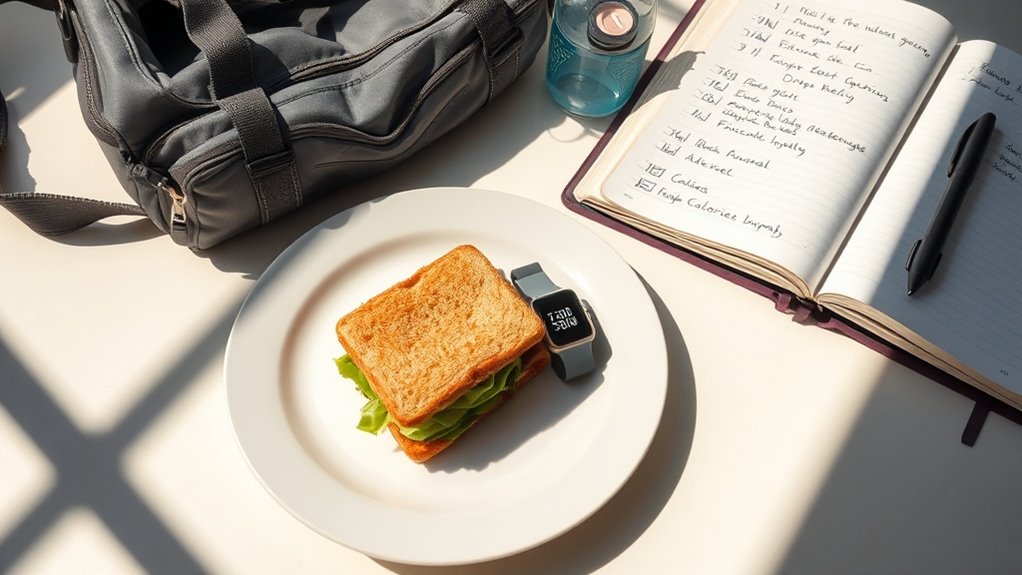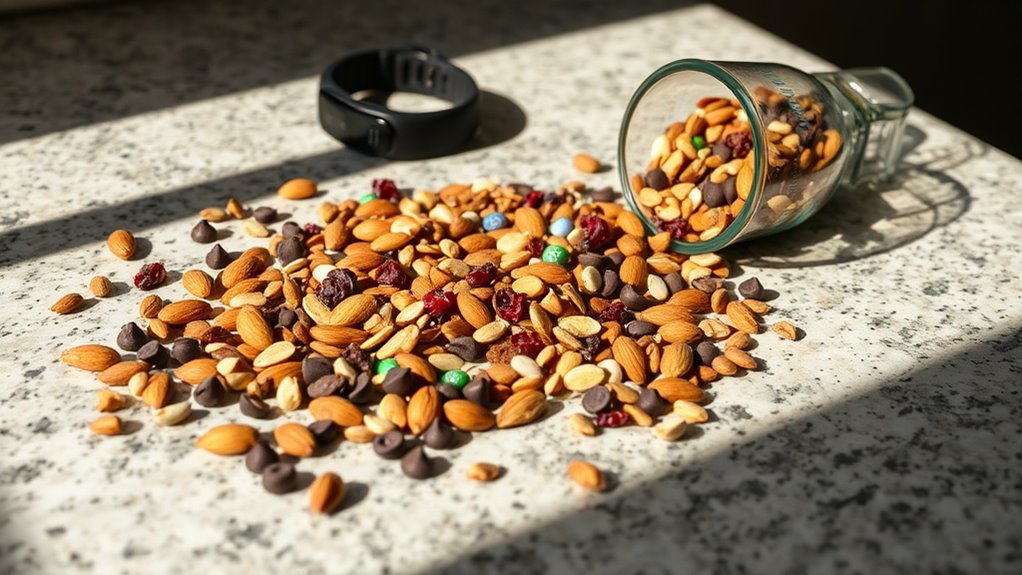I Was Doing These ‘Healthy’ Things All Wrong!
The Myth of Skipping Breakfast
Have you ever wondered if skipping breakfast really affects your health? Many people think it’s a harmless choice, but research shows it can lead to unhealthy mistakes.
Without breakfast, you might experience energy crashes, increased cravings, and impaired focus. Skipping breakfast can also trigger starvation mode, which slows down your metabolism and can lead to overeating later in the day.
Prioritizing a balanced morning meal helps stabilize your metabolism and supports overall wellness.
Don’t let this common myth derail your health journey!
Misunderstanding Portion Sizes
Misunderstanding portion sizes can lead to overeating and skewed nutrition.
You might rely on misleading food labels or serve up too much because of your plate size. Tracking intake with a food diary or app can help improve your awareness of serving sizes on food labels.
Misleading Food Labels
While it might seem easy to make healthy choices at the grocery store, misleading food labels often complicate your decision-making, particularly when it comes to portion sizes.
Many products flaunt low calories or “healthy” ingredients, but check the serving size—it’s usually set so low that it masks the true calorie count.
Always read the fine print to make informed choices for your health.
Plate Size Impact
The size of your plate can significantly influence how much you eat, often without you even realizing it.
Using larger plates can lead you to fill them, resulting in increased portion sizes.
Here are three key insights:
- Larger plates can trick your brain into thinking you need more food.
- Smaller plates often encourage healthier portions.
- Your environment heavily influences your eating habits.
Make mindful choices!
Serving Sizes Confusion
Have you ever found yourself puzzled by the difference between serving sizes and portion sizes? You’re not alone! Many get these terms mixed up, leading to unhealthy eating habits. Understanding serving sizes can help you control portions better.
| Food Item | Serving Size | Typical Portion Size |
|---|---|---|
| Pasta | 1 cup | 2 cups |
| Ice Cream | ½ cup | 1 cup |
| Peanut Butter | 2 tbsp | 4 tbsp |
Over-Reliance on ‘Low-Fat’ Products
How often do you reach for ‘low-fat’ products, assuming they’re a healthier choice? Many do, but these items can be misleading.
They often contain added sugars or artificial ingredients to enhance flavor, which can derail your health goals.
Consider these:
- Low-fat cookies can be high in sugar.
- Low-fat dressings might have more sodium.
- Low-fat yogurt can be packed with fillers.
In fact, many low-fat items might be hiding hidden sugars, which contribute to excessive calorie intake.
Reassess your choices!
Neglecting Strength Training
While many people focus solely on cardio for weight loss and heart health, neglecting strength training can significantly impede your fitness progress.
Strength training not only builds muscle but also boosts metabolism, helping you burn more calories, even at rest. Incorporating just two to three sessions per week enhances overall health, builds bone density, and improves your endurance for daily activities. Additionally, a strong core stabilizes movements, improving performance in other workouts.
Don’t skip this essential component!
Misconceptions About Hydration
When it comes to hydration, you might be falling for some common myths about water intake.
Many people believe they need to drink eight glasses a day regardless of activity level, but your body’s needs can vary widely. Understanding the timing of your hydration can also make a bigger difference in your performance and overall health. For instance, drinking water 30 minutes before meals can promote fullness and help manage cravings.
Water Intake Myths
Ever wondered if you really need to drink eight glasses of water a day? This common myth can lead to stress and confusion about hydration.
Here’s the truth:
-
Your body’s water needs vary by individual and activity level.
-
Foods contribute to your daily intake.
-
Thirst is a reliable indicator of hydration.
Listen to your body; it knows what’s best for you!
Hydration Timing Tips
Timing your hydration can significantly impact how well your body functions throughout the day.
Instead of chugging water at once, aim to sip consistently, especially before and during meals. Research shows this enhances digestion and absorption.
Additionally, try to hydrate early in the morning to kickstart metabolism.
The Truth About Detox Diets
Wondering if detox diets really cleanse your body? The truth is, your body already has a built-in detox system—your liver and kidneys.
Here’s what to consider:
-
Many detox diets cause short-term weight loss but can lead to nutrient deficiencies.
-
They may disrupt your metabolism.
-
They often rely on excessive juice consumption, which can spike blood sugar levels.
It’s time to think critically about health!





